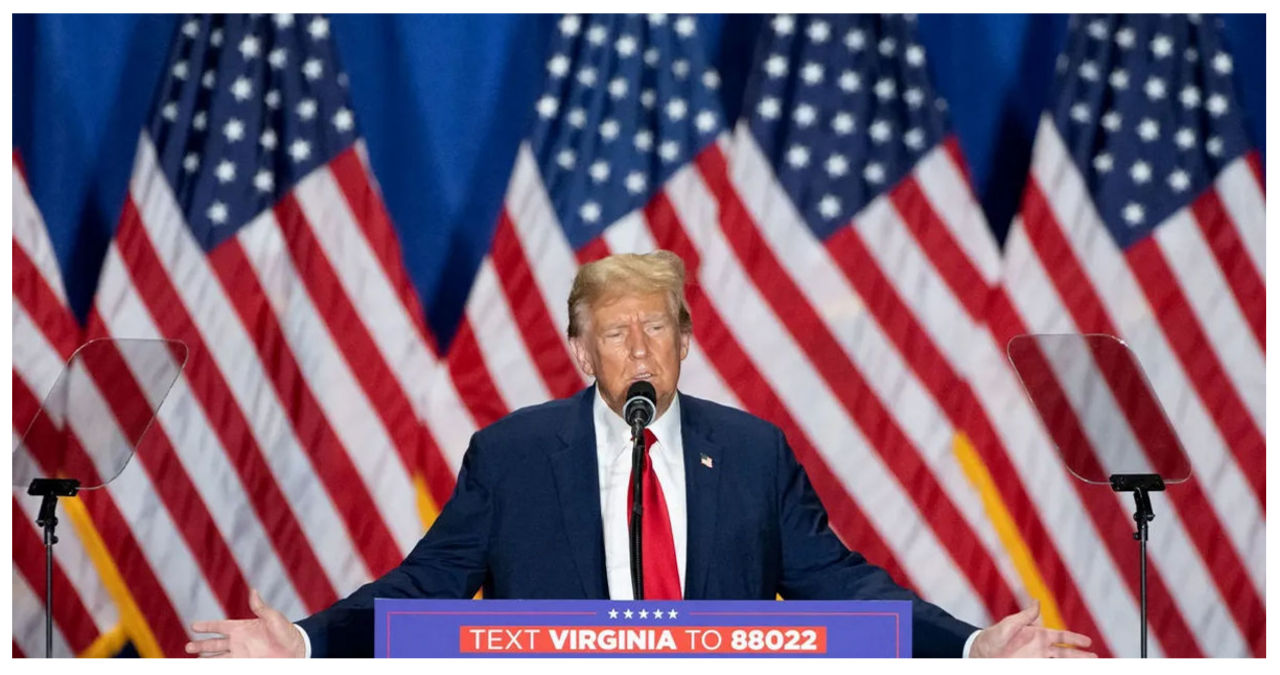The Supreme Court’s verdict on Monday shifted the focus of the potential chaos surrounding attempts to remove former President Donald Trump from the ballot to Congress. This has raised concerns among legal experts who worry that the court’s decision may have left as many problems unresolved as it resolved.
All nine justices unanimously agreed that states are prohibited from disqualifying federal candidates under Section 3 of the 14th Amendment. This provision specifically prohibits individuals who have “engaged in insurrection or rebellion” against the Constitution from holding public office.
“The justices have concluded that states do not have the authority, as outlined in the Constitution, to enforce Section 3 in relation to federal offices, particularly the Presidency,” they stated. “Enforcing this section at the state level would create a fragmented system and disrupt the essential connection that the Framers considered vital between the National Government and the entire population of the United States.”
Legal experts have been engaged in a spirited debate over whether the lack of clarity in the Supreme Court’s ruling has left the door open for another January 6. The majority of the court decided to grant Congress the power to establish the procedure for disqualifying insurrectionists from federal office.
According to Bennett Gershman, a former New York prosecutor and law professor at Pace University, the five most conservative justices on the court deviated from the main issue and made a ruling that was unnecessary.
According to legal expert Gershman, the justices have essentially undermined the Constitutional disqualification provision, turning it into a meaningless measure. Their ruling has made it extremely difficult to disqualify federal officials, including Trump, from holding office, even if they were involved in an insurrection like the one on January 6th. By disregarding the provision’s text, these five justices have determined that disqualification can only occur through specific legislation enacted by Congress. Gershman argues that such legislation is unlikely to be passed, especially while Trump remains the Republican candidate.
According to the ruling by five justices, the enforcement of the insurrection clause can only occur if Congress passes specific legislation, he explained.
According to Politico, experts emphasize the importance of formal legislation in the current situation. They argue that Democrats could assert their constitutional right to prevent Trump from assuming office, citing his attempts to undermine the transfer of power.
According to David Schultz, a professor of political science at Hamline University, the Democrats’ attempt to use this clause as a means to prevent another Trump presidency is nothing more than a fantasy. He believes that relying on the ballot box is a more viable and effective solution.
Schultz emphasized the Democrats’ reliance on the Insurrection Clause and the courts for over a year, highlighting their lack of faith in the American electoral system and the people. It also reflects their lack of confidence in Biden as a candidate to defeat Trump. Schultz believes that it’s crucial for them to understand the need for a stronger presidential candidate or to find a way to outvote Trump. He dismisses the Insurrection Clause as a mere fairy tale solution based on dubious legal theories that have been rejected, stating that it won’t come to the Democrats’ rescue.
According to Schultz, the 14th Amendment disqualification of Trump’s electoral votes could be challenged by Democrats. However, the Constitution’s Article II and the 12th Amendment impose limitations on Congress regarding the counting of electoral votes.
According to Schultz, the updated Electoral Count Reform Act and the court case Trump v. Anderson make it clear that Congress cannot simply choose to disregard the electoral votes for Trump on January 6, 2024.
In order to invoke the Insurrection Clause, Congress would need to take action prior to that point. It is not permissible to utilize the clause on January 6 solely to contest the electoral votes on that specific date. It is important to note that the act of counting the electoral votes and addressing any challenges to them are distinct from the declaration of Trump as an insurrectionist and the prevention of him assuming office.
The ruling determined that the judgment made by the Colorado Supreme Court cannot be upheld, but it did not make a definitive statement regarding whether Trump was involved in insurrection. As a result, the votes cast for Trump in Colorado’s primary will be included in the overall count, and it is unlikely that any further legal challenges questioning his eligibility in other states will hold up.
Shortly after the Supreme Court’s ruling on the Colorado ballot, Trump took to his Truth Social platform to express his excitement: “This is a huge victory for America!!!”
According to Schultz, the court has left a number of issues unresolved, despite resolving some. However, he states that unless the Democrats secure a majority in both the House and the Senate, they will not be able to utilize the Insurrection Clause to prevent Trump from becoming president.
If the Democrats win majorities in November and then take action in January to prevent him from holding office before the electoral votes are counted on January 6, there is a chance they could do so.
Schultz expressed concern about the risky nature of this political move, cautioning that it could potentially result in another uprising like the one on January 6. He also pointed out that this action would align with Trump’s narrative of a stolen election.



